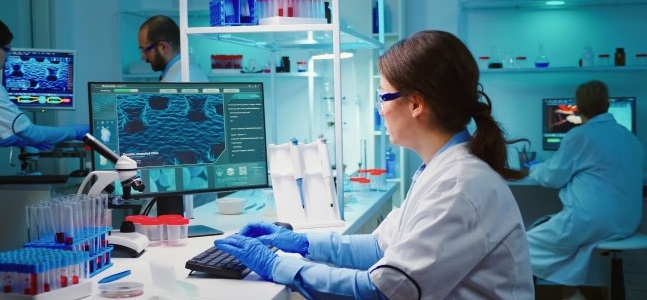Paternity testing has become increasingly common, providing a straightforward means to resolve questions about a child’s biological father. Despite its accessibility and high accuracy, persistent myths and misconceptions surround this form of DNA testing. Understanding the facts behind these misconceptions is crucial for individuals considering a paternity test and can help bring peace of mind.
Myth 1: Paternity Testing is Only for Establishing Child Support
Fact: While paternity testing undoubtedly plays a significant role in child support cases, its utility extends far beyond this purpose. Paternity testing can be crucial in various situations:
– Establishing Inheritance Rights: Determining paternity ensures a child’s legal right to inherit from their biological father.
– Social Security Benefits: Children may be eligible for social security benefits based on their father’s work history.
– Medical History: Establishing paternity helps construct a comprehensive medical history for the child, aiding in future diagnoses or treatments.
– Immigration Cases: Paternity tests can assist in family-based immigration petitions.
– Personal Peace of Mind: For many individuals, a paternity test offers resolution of uncertainty, promoting deeper bonding and security within family relationships.
Myth 2: Paternity Tests Involve Painful Procedures
Fact: Modern paternity testing is entirely painless. In the past, it might have involved blood samples, but this is no longer necessary. Current tests use simple cheek swabs (buccal swabs) to collect DNA samples from both the child and alleged father. The process is quick, non-invasive, and can even be performed at home with discreet DNA testing kits.
Additionally, innovative advancements in paternity testing technology, such as the KinTouch Plus 4 paternity test kit, offer an alternative method using fingerprint analysis. This cutting-edge approach provides a convenient and painless option for establishing paternity.
Myth 3: Paternity Tests are Expensive
Fact: Paternity tests are generally quite affordable. Costs may vary by location and type of test. Consider the following:
– At-home DNA Tests: These are the most budget-friendly option. Reputable at-home testing kits provide highly accurate results, though they are not legally admissible in court.
– Legal Paternity Test: A ‘legal paternity test with legal standing in a court of law will likely be more expensive. Due to strict chain-of-custody procedures, authorized individuals collect and analyze samples, ensuring validity for legal purposes. Ultimately, one should weigh the cost against the potential benefits in resolving paternity issues.
Ultimately, one should weigh the cost against the potential benefits of resolving paternity issues.
Myth 4: Paternity Tests Can Only Be Done After the Child is Born
Fact: While postnatal paternity testing is the most common, prenatal testing options also exist. Non-invasive prenatal paternity testing (NIPP) uses a sample of the mother’s blood and a cheek swab from the potential father to determine paternity as early as the first trimester of pregnancy. This option is safe and poses no risk to the fetus.
Myth 5: Paternity Test Results are Not 100% Accurate
Fact: when performed by accredited laboratories, DNA paternity testing offers extremely high accuracy. Reliable tests typically provide results with a probability of paternity exceeding 99.99% for inclusions. This means that if a man is the biological father, the test will confirm it with near certainty. In cases of exclusion (when the man is not the biological father), the results are 100% accurate.
Myth 6: A Mother’s Consent is Always Required
Fact: The laws regarding a mother’s consent in paternity testing vary by jurisdiction. In some places, the mother’s consent is necessary, especially if the child is a minor. However, in other locations, a legal guardian or even the alleged father himself may initiate the process. If you are considering a paternity test, it’s crucial to consult with an attorney or research your local laws to ensure the proper legal process.
Myth 7: Paternity Test Compromise Your Privacy
Fact: Reputable DNA testing laboratories prioritize confidentiality and adhere to strict protocols in the handling of genetic information.
– At-home Tests: Results are usually communicated privately to those tested, often accessible through password-protected online portals.
– Legal Tests: Results may become part of legal proceedings, which might involve court records. However, laboratories do not share your DNA information beyond the purpose of the test.
Conclusion
Paternity testing offers a reliable and accessible method to determine a child’s biological father. Understanding the facts behind common myths empowers individuals to make informed decisions about this powerful scientific tool. Whether addressing legal matters, establishing familial rights, or simply finding peace of mind, the value of accurate paternity testing cannot be overstated.




